A Conversation With My Childhood Self

A message every child needs to hear is, “Jesus loves you and He won’t ever leave you. He won’t ever let you down.”
Continue Reading ›A New Way to Give More to Your Sponsored Child

Beginning today through June 30, 2014, if you are a member of the Compassion Bloggers Network and you participate in at least three blogging assignments you will be eligible for our rewards program.
Continue Reading ›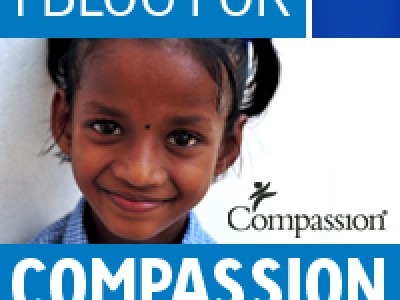
September is Blog Month at Compassion
September is Blog Month at Compassion. And what that means is prizes, giveaways, blogging assignments and more children sponsored via the Internet than any previous September in our history.
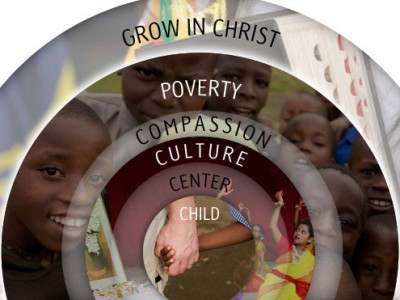
Where Do You Want to Go? The Compassion Blog “Rethunk”
This blog post has one purpose: to refine the vision for the Compassion blog. That might mean we simply affirm what the blog’s purpose has been for the last few years. Or it might mean we come up with something new. Either way, now is the time to tell us what we should focus on.
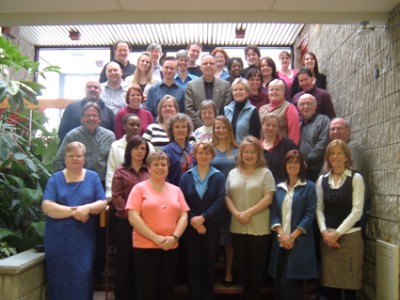
How Different (and Similar) are Compassion Canada and Compassion USA?
When it comes to sponsorship, there are a couple of ways in which Compassion Canada and Compassion USA are different, and several ways that we are the same.
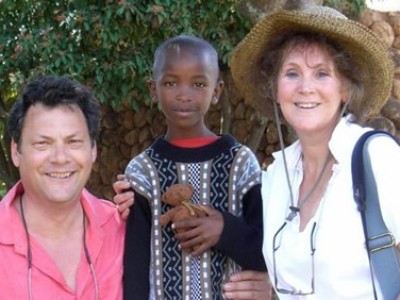
Poverty Changed My Life
Martyn Legg was in a highly pressurized work environment, living with big demands and no room to back off. He and his wife Heather visited Kenya on a sponsor trip for ten days – ten days that changed their lives.

Are We the Best Corporate Blog You’ve Ever Read?
What do you think of our blog? Would you say that it’s one of best corporate blogs you read? Why or why not?
What’s Stopping You From Writing a Letter to Your Sponsored Child?
Compassion couldn’t make it any easier on us. They mail us the paper, the envelopes, the ideas. They also have a fantastic website, which allows us to donate more money online and submit letters electronically. What’s my problem?
Who Writes the Compassion Blog? A Bunch of Marketing Cheerleaders?
I don’t think it’s possible to be authentic without being transparent.
By consciously withholding something or avoiding a subject because I fear a reaction – anger, rejection, judgment, etc., I’m not being authentic. I’m being manipulative.
Choosing what to share and what not to share is lying by omission, and it’s not being transparent or authentic.
What does this have to do with children in poverty and Compassion International?
- You’re reading Compassion’s blog about child poverty.
- A blog is media — social media.
- Media is manipulative.
- We want to get more children sponsored. More! More! More!
- The blog helps us do that.
- We’re afraid to say anything that will muck that up.
I’ve had conversations with employees who have said that “the blog is just a big commercial for Compassion.” And “the blog is too rah-rah, like it’s written by a bunch of cheerleaders.” Or GASP! Marketers.
I agree that our first two months have been filled with lots of feel good posts, and I know we can’t be everything to everyone, and I don’t think we have a problem yet; however, if you perceive the blog to be a one-dimensional commercial about how great Compassion is, as opposed to an authentic and sincere communication with you and for you, rather than at you and for us, then I’m wrong and we have a PROBLEM.
Am I wrong?
And what’s your perspective, meaning how involved with Compassion are you? Are you drinking the same Kool-Aid as us employees? Are you Super Volunteer or Super Sponsor … or are you just passing through?
How do we share anything positive with you without sounding like a bunch of cheerleaders?
Am I over-thinking this stuff?
If you’ve never commented before, please consider doing so now. You non-commenters have opinions too. I know you do.
Lives Transformed
One of the most impactful things I observed during our trip to Uganda was the profound difference between the children in a Compassion child sponsorship program compared to other children. Compassion-assisted children are connected with a loving, church-based program that provides:
- educational opportunities
- health care and supplemental nutrition
- opportunities for safe recreation
- opportunities to learn about important life skills
- hope and a sense of confidence
- most important of all, the child has the opportunity to hear about Jesus and be encouraged to develop a lifelong relationship with God
I met this child in the slums of Kampala. He’s not part of our child sponsorship program.
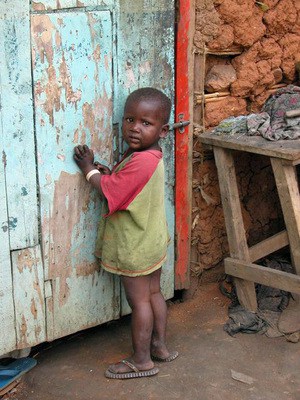
I met these children at Compassion’s program. There’s a significant difference between the two photos. The children in our child development centers still lead difficult lives but they have a sense of hope and purpose.

Everywhere we went, people would tell us things like:
- Compassion is doing great work in our country.
- Do you know my sponsor? If so, tell her I said thank you.
- I love my sponsor.
- I would not be the person I am today without Compassion.
All of the bloggers on the trip have arrived safely home, but you can still follow along since they’re still processing the experience and writing about it.
Check out the Uganda Blog Trip page and click through to the blogs to read what they’re saying.
Inside Uganda With Patience Musiime
If you’ve been following our 15 Christian bloggers on their trip to Uganda you’ve seen only a glimpse of what it’s like to live in extreme poverty. It’s an outside view of Compassion’s ministry.
Today we present part two in a series of blog posts from staffers of Compassion Uganda who will give you an inside look into how Compassion’s ministry operates among the poorest of the poor.
The Child Survival Program (CSP) serves caregivers, infants and toddlers in some of the world’s poorest communities. Caregivers enrolled in CSP are visited each week by dedicated staff, whose passion is to bring health and healing to homes affected by poverty. Patience Musiime, a CSP specialist in Uganda, shares her favorite stories of hope from the Child Survival Program.
In 2004, Uganda opened our first Child Survival Program. At the Bugongi CSP, we have seen so much happen in just four years. In the Bugongi CSP, all of our 20 pregnant mothers have given birth to bouncing, healthy babies. This is a miracle! In Uganda, 200,000 children under the age of 5 die every year. But the babies in CSP are living!
In Uganda’s CSPs, we first understand that a mother must be healthy if she is to take care of her children. So we make sure our mothers go to a licensed health care center for their medical care, both before and after the baby is born. Since hundreds of thousands of mothers and children in Uganda are infected with AIDS, we also make sure to teach our mothers about protecting themselves and their families from this disease. For mothers who have HIV, we arrange medical care and teach them income-generating activities. But CSP is not just about caring for a family’s physical needs. We believe spiritual poverty is just as deadly as physical poverty.
In the first year that the Bugongi CSP was open, two mothers made a commitment to Christ. Today, 75 of our mothers know Christ as their Savior. These mothers are able to attend Bible studies, discipleship classes and home fellowships. Also, when we visit the homes of these mothers, we pray with them and help them understand how much Jesus loves them.We believe that we can end poverty for the families in our Child Survival Programs. If we can teach our mothers income-generating activities, they can help support their families and gain confidence.
Bugongi CSP runs an adult literacy class, and 26 mothers who formerly could not read and write now write their names, do simple arithmetic. and read in the local languages. Five mothers have successfully graduated with certificates in fashion and design. Mothers are also given skills in crocheting and home baking.
If you could visit us at the Bugongi CSP, I would introduce you to so many of our mothers whose lives have been changed. You would meet Mary, mother to Doreen, who tells us, “CSP has helped me through parenting seminars to attain parenting skills. My child now looks healthy. I have learned to read and write. I now can write my name. I gave my life to Christ through evangelism sessions in CSP.”
And you could meet Anne, who is enrolled with her twins Angel and Andrew. She told me, “CSP has done a lot in my life. I have learned how to prepare a rich meal for my children, the importance of immunization and how to live peacefully with other people. I can now talk in public and I really love my children, play with them and teach them.”
CSP is changing lives. So far, we have witnessed 46 of our children transfer to the sponsorship program. These children are well developed physically, spiritually, socially and mentally. All because there are CSP partners who believe in releasing children from poverty in Jesus’ name.
Inside Uganda With Jessica Masanganzira
If you’ve been following our 15 Christian bloggers on their trip to Uganda you’ve seen only a glimpse of what it’s like to live in extreme poverty. It’s an outside view of Compassion’s ministry.
Today we begin a series of blog posts from staffers of Compassion Uganda who will give you an inside look into how Compassion’s ministry operates among the poorest of the poor.
What happens if a sponsored child needs an expensive operation? Or if his home is destroyed by a natural disaster? That’s where Compassion’s Complementary Intervention (CIV) program comes in.
CIV seeks to strengthen the ministry’s core programs by providing for needs that go above and beyond child sponsorship. CIV includes a number of ministry areas, including the AIDS Initiative, the Medical Fund, and Disaster Relief.
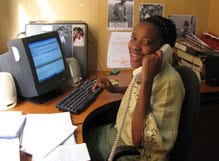 Jessica Masanganzira is the CIV Administrator for Uganda, and she is able to daily provide for the needs of children and church partners in this poverty-stricken country.
Jessica Masanganzira is the CIV Administrator for Uganda, and she is able to daily provide for the needs of children and church partners in this poverty-stricken country.
I have seen many successes in the CIV program in Uganda. The water program, for one, has helped many communities here, and it has contributed a lot towards improving the health of the children and immediate families.
In the Mulatsi Child Development Center, for example, an average of 32 children each month had diarrhea infections and abdominal pains due to the consumption of contaminated water. After installation of the borehole (a kind of well), medical expenses reduced by 23 percent, distances children traveled to fetch water reduced from 5 to 2 kilometers, and their classroom grades improved by 13 percent to date.
Another CIV project that has had great success in Uganda has been the nutrition training we have provided for children and caregivers. As a result of poverty and low levels of education, inadequate feeding, and lack of knowledge on children’s nutritional requirements, there is a high rate of malnutrition among newly registered children.
On average, 28 percent of children are reported malnourished and yet Compassion cannot continually provide nutritional support for all. Some families can barely afford a single meal a day and only get a reasonable meal only on center days at the project. This was hindering health, social and emotional development.The practical nutrition trainings and demonstration projects have led to improved health among children.
In one of the benefiting projects, Kisoro Child Development Center, malnutrition has dropped to 12 from 68 cases in a period of one year. Children and caregivers learned the nutrition requirements for children, trained in modern farming and animal-rearing methods, food preservation and storage to cater for dry seasons; horticulture and fruit growing, too, have been promoted at the projects and in children’s families.
I pray that CIV will continue to eliminate key child development barriers for the families in our programs. As we are educating and helping children and families, I believe we are changing our whole country. CIV works!


